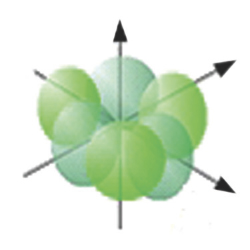Article contents
First-principles design of next-generation nuclear fuels
Published online by Cambridge University Press: 22 March 2011
Abstract

The behavior of nuclear fuel in a reactor is a complex phenomenon that is influenced by a large number of materials properties, which include thermomechanical strength, chemical stability, microstructure, and defects. As a consequence, a comprehensive understanding of the fuel material behavior presents a significant modeling challenge, which must be mastered to improve the efficiency and reliability of current nuclear reactors. It is also essential to the development of advanced fuel materials for next-generation reactors. Over the last two decades, the use of density functional theory (DFT) has greatly contributed to our understanding by providing profound information on nuclear fuel materials, ranging from fundamental properties of f-electron systems to thermomechanical materials properties. This article briefly summarizes the main achievements of this first-principles computational methodology as it applies to nuclear fuel materials. Also, the current status of first-principles modeling is discussed, considering existing limitations and drawbacks such as size limitation and the added complexity associated with high temperature analysis. Finally, the future role of DFT modeling in the nuclear fuels industry is put into perspective.
- Type
- Research Article
- Information
- MRS Bulletin , Volume 36 , Issue 3: High-performance computing for materials design to advance energy science , March 2011 , pp. 178 - 184
- Copyright
- Copyright © Materials Research Society 2011
References
- 15
- Cited by


